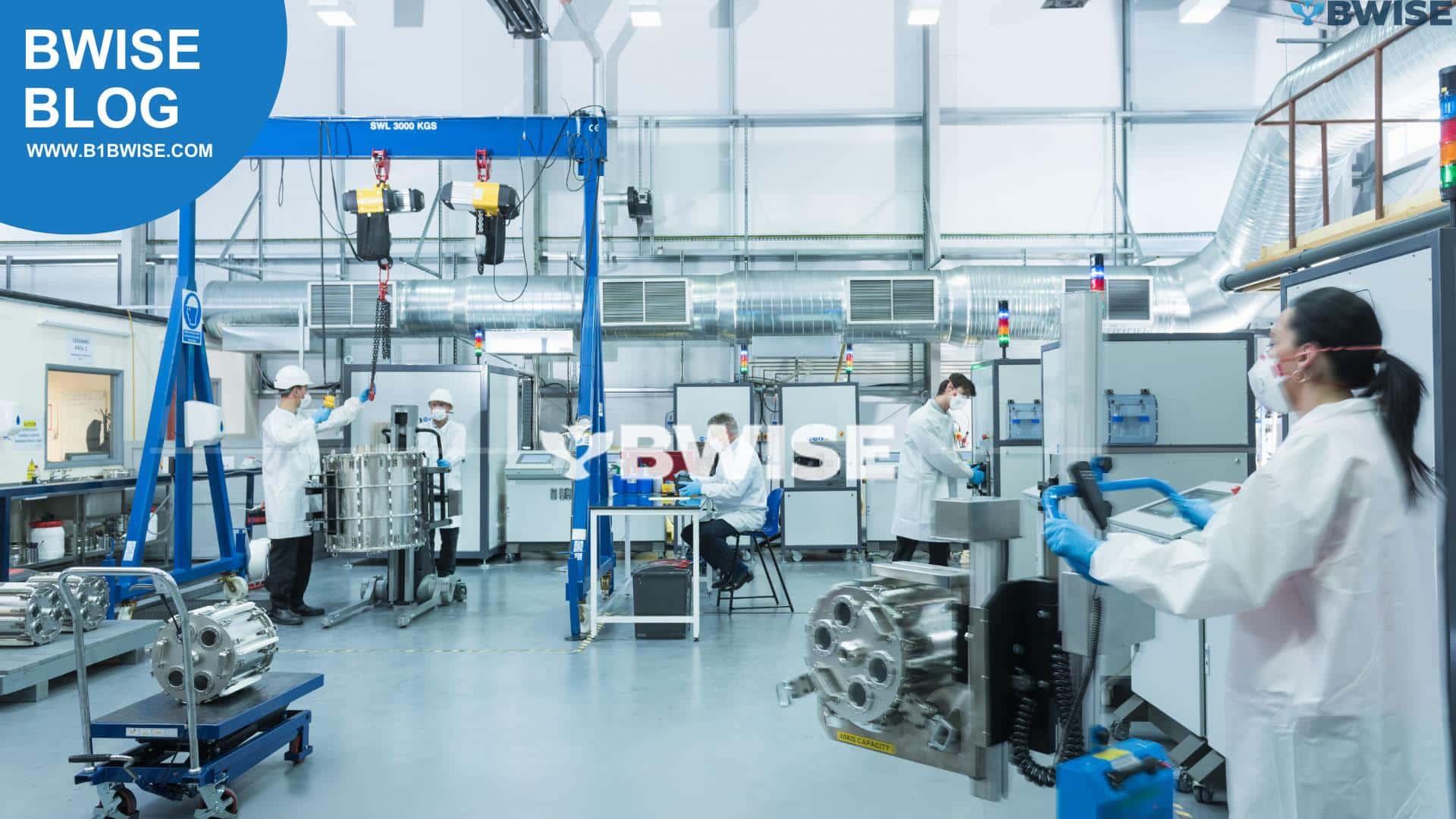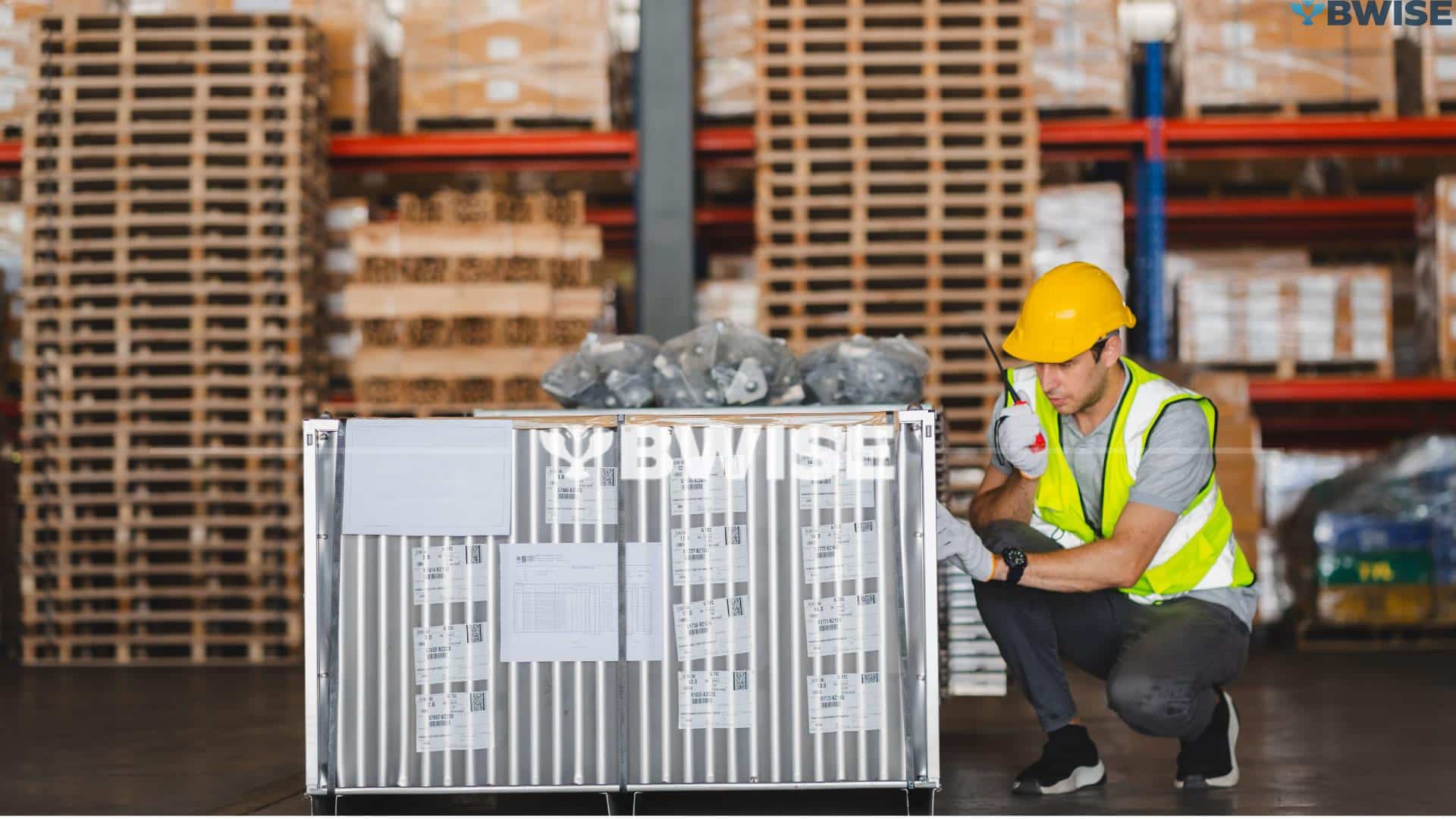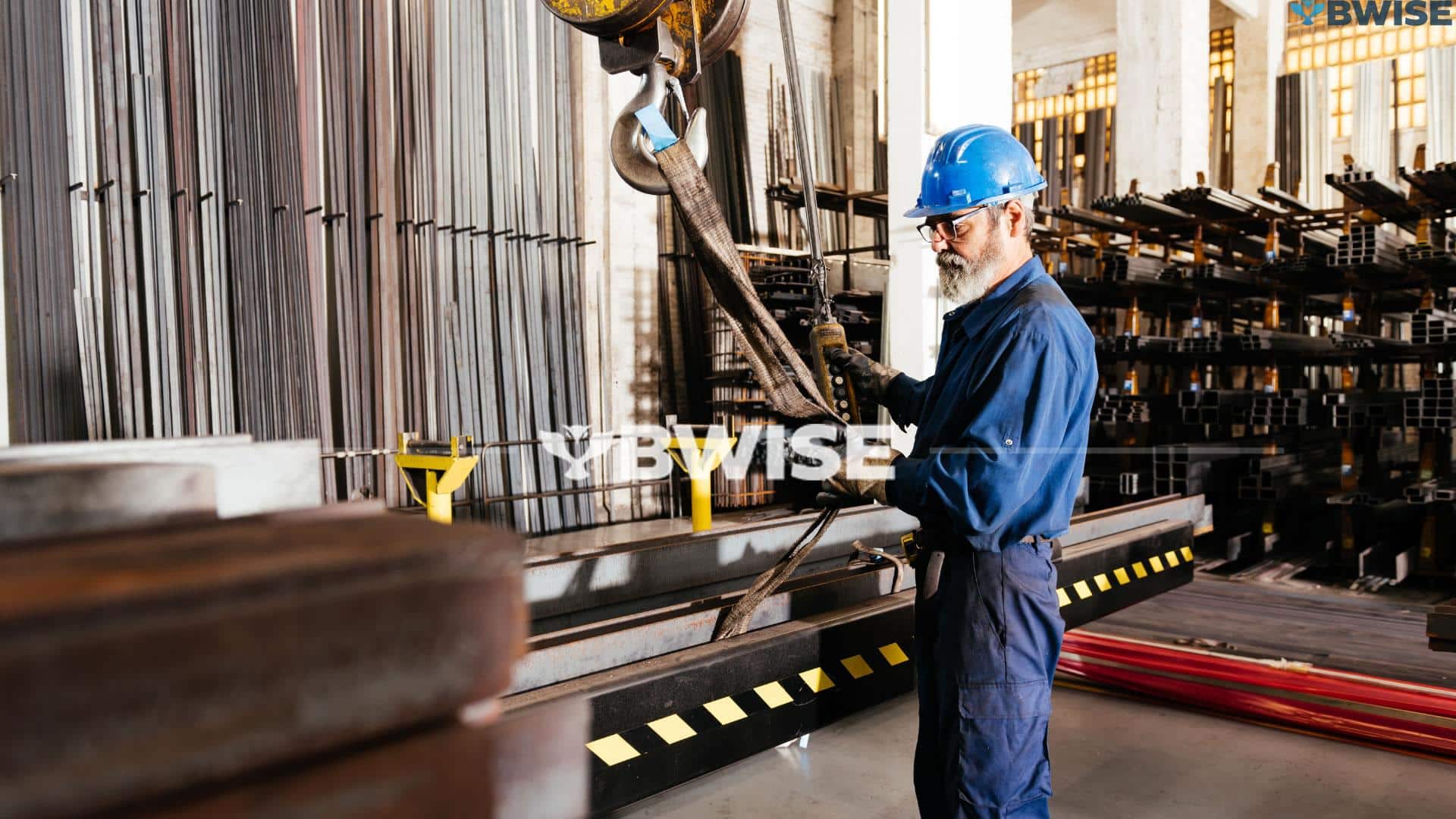A digital tool called manufacturing process software was created to improve and simplify production workflows in the manufacturing sector. From planning and scheduling to quality assurance and supply chain management, these technologies provide real-time insight and control over the whole production process. Manufacturing process software helps manufacturers increase productivity, efficiency, and profitability by automating repetitive operations and connecting with enterprise resource planning (ERP) systems.
Enhanced production scheduling, inventory management, regulatory compliance, and data-driven decision making via sophisticated analytics and reporting features are some of the main advantages of manufacturing process software. With the help of these technologies, firms may streamline processes, cut costs, and keep a competitive advantage in the ever-changing industrial sector.

Key Takeaways:
- Manufacturing process software enables real-time visibility and control over the entire production lifecycle.
- These solutions streamline operations by automating repetitive tasks and integrating with ERP systems.
- Key benefits include enhanced efficiency, improved production planning, and data-driven decision making.
- Manufacturing process software helps manufacturers optimize workflows, reduce waste, and maintain a competitive edge.
- The integration of these solutions with emerging technologies, such as IoT (Internet of Things) and machine learning, is transforming the manufacturing industry.
Introduction to Manufacturing Process Software
A vital part of corporate software is manufacturing process software, sometimes referred to as manufacturing execution systems (MES), which helps manufacturers optimize their production processes. With a consolidated platform to monitor and optimize the whole manufacturing lifecycle, these innovative solutions are intended to close the gap between the shop floor and the broader business administration systems.
Advanced features that automate and simplify crucial operations are the foundation of industrial process software, helping firms to boost productivity, save waste, and enhance product quality. These systems’ primary features include inventory control, quality assurance, production scheduling, and real-time data analytics. These features all work together to improve the manufacturing process from beginning to end.
By integrating manufacturing process software into their operations, companies in the industrial automation and production line management sectors can unlock a wealth of benefits. These solutions empower manufacturers to make data-driven decisions, optimize workflows, and maintain strict quality standards – all while improving overall productivity and profitability.
Optimizing Production Workflows
Manufacturing process software solutions help manufacturers optimize their production workflows by providing real-time visibility and control over the entire manufacturing process. These solutions offer advanced production planning and scheduling capabilities, allowing for automated scheduling of tasks, resource allocation, and inventory management.
Real-Time Visibility and Control
Through real-time monitoring and data analytics, manufacturing process software solutions give manufacturers unprecedented visibility into their production operations. This enables them to make informed decisions, respond quickly to changes, and maintain tight control over every aspect of the manufacturing process, driving production optimization.
Automated Scheduling and Planning
Automated scheduling and planning features in manufacturing process software streamline the production workflow by automatically allocating resources, scheduling tasks, and managing inventory levels. This helps manufacturers reduce downtime, minimize waste, and ensure efficient utilization of their production assets.
Seamless Integration with ERP Systems
By seamlessly integrating with a company’s enterprise resource planning (ERP) system, manufacturing process software ensures that all production-related data and activities are synchronized across the organization. This integration enables better decision-making, improved planning, and more streamlined operations, enhancing the overall manufacturing execution.
Quality Control and Compliance
Manufacturing process software, like BWISE, plays a crucial role in ensuring product quality and regulatory compliance within the manufacturing industry. These advanced solutions provide robust quality control tools, such as statistical process control (SPC) and real-time defect tracking, to help manufacturers maintain consistent product quality and meet industry-leading standards.
Ensuring Product Quality Standards
By integrating comprehensive quality control mechanisms, manufacturing process software empowers manufacturers to closely monitor and optimize their production processes. These systems collect and analyze real-time data from various production lines and equipment, enabling manufacturers to quickly identify and address any quality issues or defects. This ensures that products consistently meet the desired product quality standards and customer expectations.
Regulatory Compliance Management
Manufacturing process software helps producers manage their regulatory compliance needs in addition to helping with quality control. By automating the data gathering and reporting needed for several certifications and audits, these solutions simplify the compliance process and lower the chance of non-compliance. Process software assists companies in avoiding expensive fines, product recalls, and other disruptive effects of non-compliance by smoothly integrating compliance management into the manufacturing workflow.
Manufacturing process software solutions help producers cut down on errors, save waste, and keep a competitive advantage in the market by optimizing both quality control and compliance procedures. Adhering to the most stringent industry laws and standards while delivering consistent, high-quality products is made possible by this comprehensive approach to quality control and compliance management.
Inventory Management and Supply Chain Integration
Effective inventory management is a cornerstone of success for modern manufacturers, and manufacturing process software solutions provide advanced tools to optimize this critical function. These robust systems offer real-time inventory tracking, allowing manufacturers to closely monitor stock levels, materials consumption, and supply chain movements with unparalleled precision.
Inventory Tracking and Forecasting
By integrating inventory tracking capabilities, manufacturing process software enables manufacturers to gain a comprehensive understanding of their material flow and supply chain dynamics. This visibility, coupled with advanced forecasting algorithms, helps organizations predict future demand and plan production, accordingly, minimizing the risk of stockouts or excess inventory.
Supplier and Vendor Management
Manufacturing process software also streamlines the procurement and management of raw materials, components, and other supplies by seamlessly integrating with suppliers and vendors. This integration ensures a smooth and efficient supply chain, allowing manufacturers to better coordinate deliveries, optimize inventory levels, and maintain a steady flow of materials to support their production goals.

Manufacturing Process Software
Manufacturing process software, also known as manufacturing execution systems (MES), is a category of enterprise software designed to optimize and streamline production operations in the manufacturing industry. These manufacturing process software solutions provide a centralized platform to manage and control various aspects of the manufacturing process, including production planning, scheduling, quality control, inventory management, and data analytics. By automating repetitive tasks and integrating with other business systems, manufacturing process software helps manufacturers enhance efficiency, reduce waste, and improve overall productivity and profitability.
At the heart of these manufacturing execution systems (MES) is the ability to bridge the gap between the shop floor and the overall business management systems, providing manufacturers with a comprehensive and integrated approach to managing their production operations. By leveraging the power of data and automation, these solutions enable real-time visibility and control over the entire manufacturing lifecycle, from planning and scheduling to quality assurance and supply chain integration.
Through the implementation of manufacturing process software, manufacturers can streamline their workflows, optimize resource utilization, and make data-driven decisions that drive continuous improvement. This, in turn, leads to increased productivity, reduced costs, and enhanced product quality, strengthening the organization’s competitive position in the market.
Data Analytics and Reporting
Manufacturing process software solutions offer advanced data analytics and reporting capabilities to help manufacturers make informed, data-driven decisions. These systems provide real-time performance monitoring, tracking key metrics such as production output, cycle times, and equipment utilization. By closely monitoring these critical performance indicators, manufacturers can quickly identify bottlenecks, optimize workflows, and enhance overall efficiency.
Predictive Maintenance and Diagnostics
In addition to real-time performance monitoring, manufacturing process software also enables predictive maintenance by analyzing sensor data and historical performance patterns. This allows manufacturers to anticipate potential equipment issues before they occur, enabling them to schedule proactive maintenance and avoid unplanned downtime. By leveraging advanced manufacturing diagnostics, these solutions help manufacturers reduce maintenance costs, improve asset reliability, and enhance overall equipment effectiveness (OEE).

IoT and Smart Manufacturing
The integration of manufacturing process software with the Internet of Things (IoT) and smart manufacturing technologies is transforming the industry. By connecting production equipment, sensors, and other devices, these solutions leverage machine learning and data analytics to provide unprecedented visibility and control over the manufacturing process.
Connected Devices and Machine Learning
This enables manufacturers to automate tasks, optimize workflows, and make data-driven decisions that enhance operational efficiency, reduce waste, and improve product quality. The convergence of manufacturing process software, IoT, and advanced analytics is paving the way for the factories of the future, were intelligent automation and real-time decision-making drive sustainable and profitable manufacturing operations.
Enhancing Operational Efficiency
IoT and smart manufacturing technologies with manufacturing process software are transforming the industry. By connecting production equipment, sensors, and other connected devices, these solutions leverage machine learning and data analytics to provide unprecedented visibility and control over the manufacturing process. This enables manufacturers to automate tasks, optimize workflows, and make data-driven decisions that enhance operational efficiency, reduce waste, and improve product quality.
Conclusion
Manufacturing process software solutions play a pivotal role in helping manufacturers streamline their operations, enhance productivity, and maintain a competitive edge in today’s fast-paced, technology-driven industrial landscape. By providing real-time visibility and control over the entire manufacturing lifecycle, these innovative solutions enable organizations to optimize production workflows, ensure product quality and regulatory compliance, and seamlessly integrate their supply chain for improved efficiency and responsiveness.
As the manufacturing industry continues to evolve, the integration of manufacturing process software with emerging technologies, such as the Internet of Things (IoT) and machine learning, will further transform the way goods are produced. This convergence will drive greater innovation, sustainability, and profitability in the sector, empowering manufacturers to stay ahead of the curve and meet the ever-changing demands of the market.
From streamlining production planning and inventory management to enhancing quality control and supply chain integration, manufacturing process software has emerged as a powerful tool in the arsenal of modern manufacturers. By embracing these innovative solutions, organizations can unlock a new era of operational excellence, positioning themselves for long-term success in the highly competitive and technology-driven world of manufacturing. Need more information about our BWISE ERP Solution? You can request a demo here. Remember B1 BWISE!
